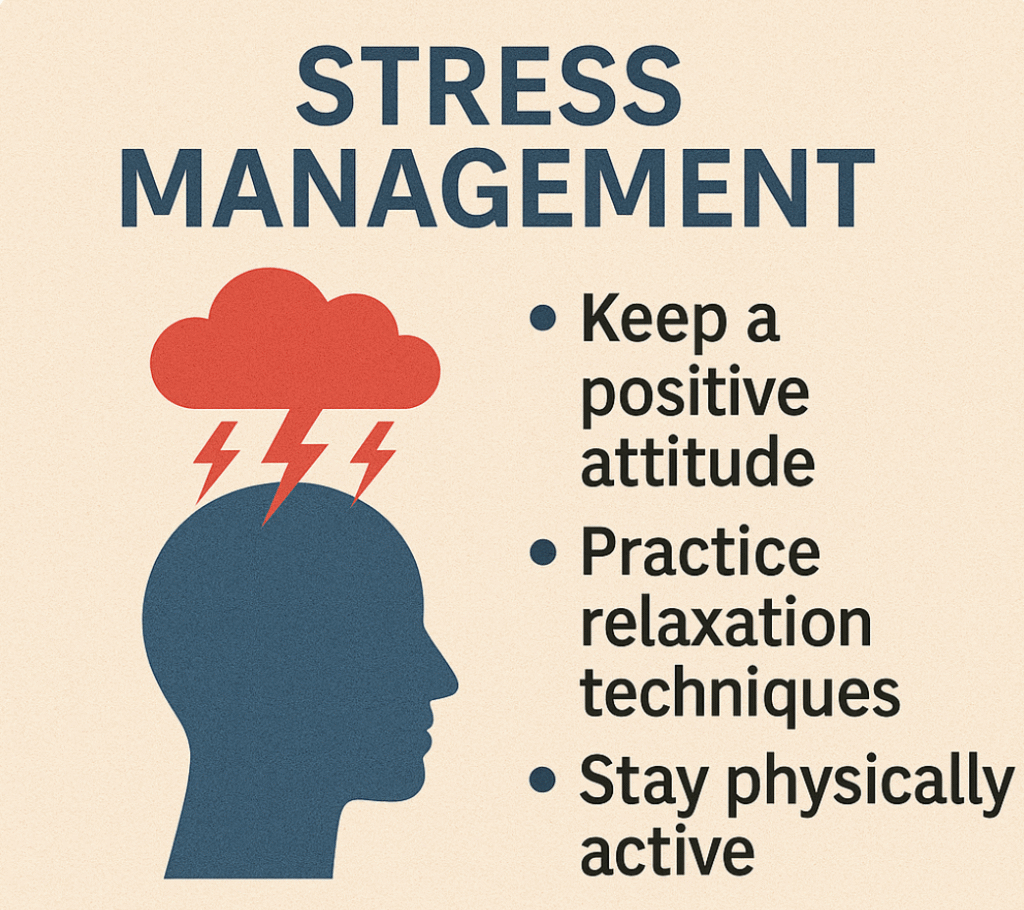Stress is a natural part of life, but when it becomes chronic, it can take a significant toll on both physical and mental health. From anxiety and sleep disturbances to high blood pressure and weakened immunity, unmanaged stress contributes to a wide range of health problems. Fortunately, stress management is a skill that can be cultivated through lifestyle changes and practical strategies.
The Physiology of Stress
When we encounter stress, the body releases hormones like cortisol and adrenaline, activating the “fight or flight” response. While beneficial in short bursts, long-term activation of this system disrupts bodily processes including digestion, immunity, and cardiovascular function. Chronic stress is linked to conditions such as heart disease, diabetes, and depression (source).
Effective Stress Management Strategies
- Maintain a Positive Attitude
Cognitive reframing—viewing challenges as opportunities rather than threats—can significantly reduce stress levels. Optimism has been shown to improve coping mechanisms and overall well-being. - Practice Relaxation Techniques
Activities like meditation, yoga, and deep breathing exercises reduce cortisol levels and promote calm. A study in JAMA Internal Medicine found that mindfulness meditation significantly improved anxiety and stress in participants (source). - Stay Physically Active
Regular physical activity reduces stress hormones and boosts endorphins, the body’s natural mood enhancers. Even simple daily movement, such as walking or stretching, can improve mental clarity and reduce tension. - Improve Sleep Hygiene
Stress and sleep are deeply interconnected. Establishing consistent bedtime routines and reducing screen time before bed helps restore the body’s natural rhythm. - Build Strong Social Connections
Having a reliable support system is crucial. Talking with friends, family, or joining support groups can provide emotional relief and practical solutions.
The Long-Term Benefits of Stress Reduction
By prioritizing stress management, individuals can experience:
- Lower risk of chronic diseases
- Improved immune function
- Better focus and productivity
- Enhanced emotional balance
- Stronger interpersonal relationships
These benefits highlight why stress management should not be viewed as optional self-care but as a critical pillar of long-term health.
🇰🇷 Premium Korean Ginseng Online Shop







